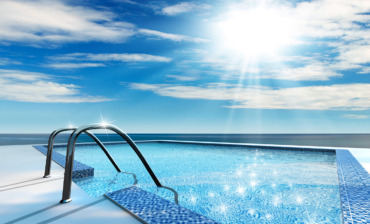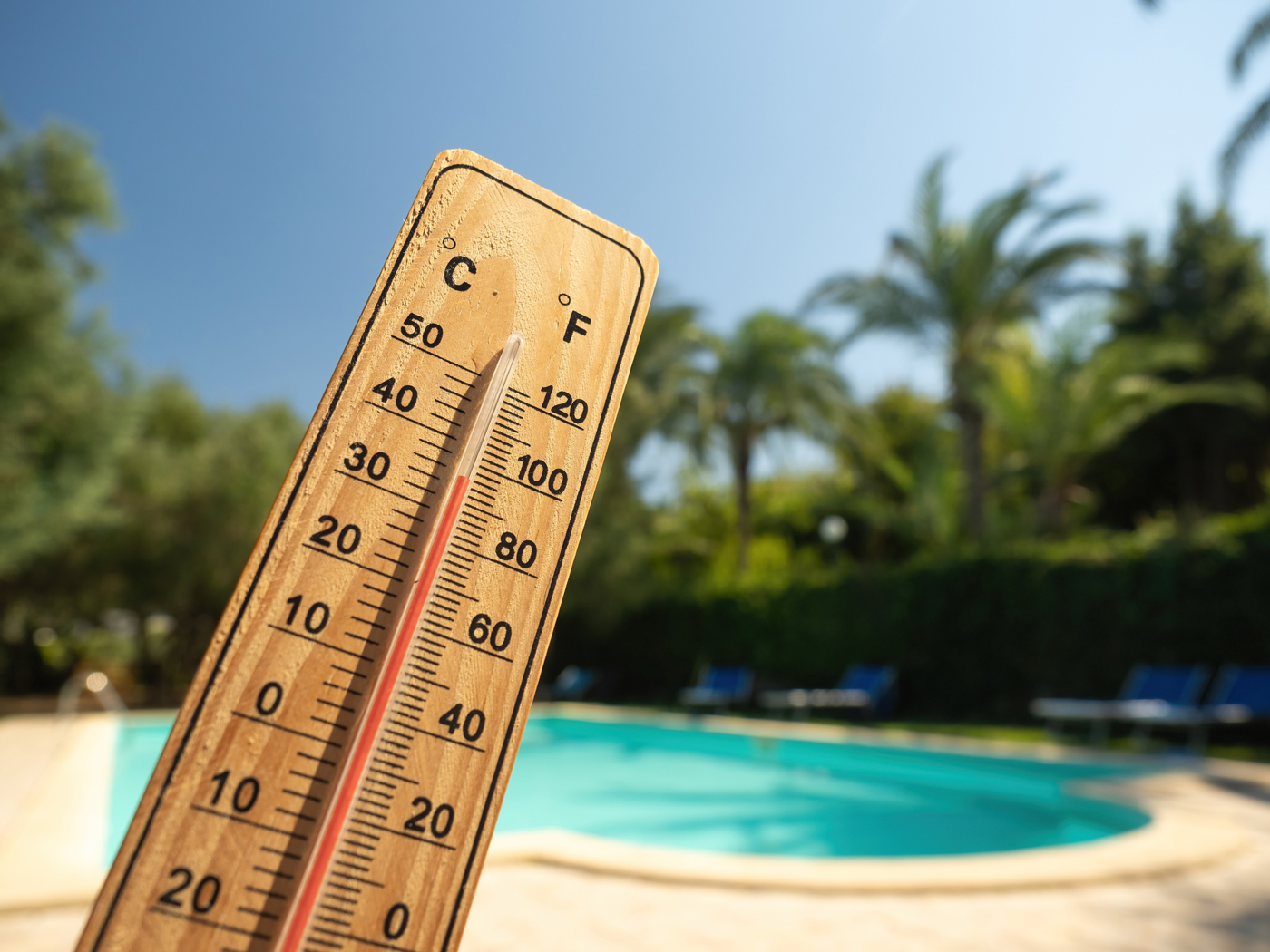Now that autumn is finally chipping away at Florida’s long season of heat and humidity, we’re all feeling a bit lighter. And less grumpy. But even as the changing weather lifts our spirits it can also spell trouble for our swimming pools.
Seasonal changes in the weather are to be expected, of course, and most experienced pool owners know how to prepare their pools for each new season. But drastic or unexpected changes in the weather have the capacity to quickly disrupt the chemistry of your swimming pool if you don’t respond quickly. This is particularly true after periods of heavy rain.
 A brief shower is unlikely to cause a major fluctuation in your pool’s chemistry, so long as it is current on its weekly treatments. But the hit-or-miss thunderstorms that roil Southwest Florida’s Gulf Coast on a near daily basis all summer long can easily drop an inch or two of rain in minutes. Often accompanied by strong winds, the heavy blowing rain can wash dirt, leaves, and other yard waste into your pool. Such massive amounts of rain and debris suddenly collecting in your pool will almost certainly disrupt its chemical balance. Additionally, rainwater has a high acid content, which will lower your pool’s pH level in no time and render its chlorine treatments ineffective.
A brief shower is unlikely to cause a major fluctuation in your pool’s chemistry, so long as it is current on its weekly treatments. But the hit-or-miss thunderstorms that roil Southwest Florida’s Gulf Coast on a near daily basis all summer long can easily drop an inch or two of rain in minutes. Often accompanied by strong winds, the heavy blowing rain can wash dirt, leaves, and other yard waste into your pool. Such massive amounts of rain and debris suddenly collecting in your pool will almost certainly disrupt its chemical balance. Additionally, rainwater has a high acid content, which will lower your pool’s pH level in no time and render its chlorine treatments ineffective.
To correct this, drain off the excess water, retest what remains, then recalibrate the blend of chemicals needed to treat. If you are new to Florida and/or pool maintenance, it’s a good idea to test the water 2-3 times a week until you get a firmer handle on how much its chemistry fluctuates between treatments. This is especially true in late spring and summer, when the days are long, the temperature is hot, and pools experience their highest amount of daily usage.
Florida isn’t called the “Sunshine State” for nothing. But sunshine will degrade chlorine that hasn’t been properly stabilized. If your pool spends several hours in direct sun each day, you can purchase a stabilizing agent at your local pool store to prevent it from breaking down. You can also purchase chlorine with a stabilizing agent already blended in.
 Happily, for most Floridians, there’s no such thing as closing the pool for the winter. Indeed, many of us hearty northerners enjoy our pools well into the winter months, especially when they’re heated. Moreover, as most Florida pools are caged and screened, the lanais they create often become outdoor extensions of our home’s main living area. Winter is the time of year Floridians live for, so being able to dine outside by a sparkling blue pool on a perfect evening is our reward for surviving another long hot summer.
Happily, for most Floridians, there’s no such thing as closing the pool for the winter. Indeed, many of us hearty northerners enjoy our pools well into the winter months, especially when they’re heated. Moreover, as most Florida pools are caged and screened, the lanais they create often become outdoor extensions of our home’s main living area. Winter is the time of year Floridians live for, so being able to dine outside by a sparkling blue pool on a perfect evening is our reward for surviving another long hot summer.
With less rain, heat and humidity, fewer hours of daylight and less overall usage, your two biggest pool chores during the winter months are testing the water (as usual) and monitoring its level. The summer rainy season is followed in short order by the region’s annual dry season, which typically runs through late spring. Less rain and lowered humidity often result in evaporation of water from your pool. If left unchecked, the water level can drop low enough to allow air into the filtration system which can damage the motor and lessen its ability to circulate chlorinated water effectively. A good rule of thumb is to make sure the water level is always halfway up the wall of the skimmer basket opening.
Before you know it, the rain, heat, and humidity will be back with a vengeance and your annual cycle of seasonal pool care will begin anew.


Comments